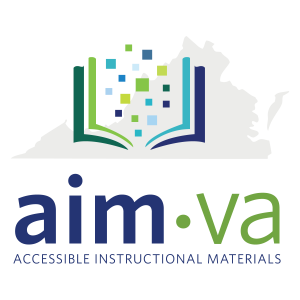At 2 PM on Monday, March 23rd, Governor Ralph Northam announced that Virginia's public schools will close for the rest of the school year. Amy Stewart and Nicci Dowd, co-chairs of VSTE's Inclusion Task Force, offer guidance for making sure we are using technology to meet the needs of all our students.
As our world has changed over the last couple of weeks, we have all come to understand the importance of instructional technology to our educational systems. With the closure of schools, many school divisions quickly shifted to online instruction. As we venture into this largely unknown territory, there have been profound and on-going discussions regarding how to reach the diverse student populations we all serve. Students are preparing to "work from home," and we have to make sure that we are diligent in providing them with the appropriate resources and opportunities.
What better time to ignite this conversation on how instructional technology can support teachers and their students regardless of cultural differences and/or ability levels? That is ultimately the beauty of instructional technology; it makes differentiation possible on a grand scale and we have an opportunity to practice it now.
How do we make sure differentiated online resources are provided to students? There is still much work to be done to ensure differentiation. Even with the assistance of instructional technology, it will not be quick, but it is worth it so that we can make sure we are reaching all students during this critical time.
Here are some helpful tips as teachers prepare to support their students;
- Have you been online with your students this past week? If so, take a moment to do a quick check. Have ALL your students been participating? If not, who is missing? Is there another way besides the Internet to reach out to them? Not all students will be at home with adults, and many may be taking care of younger household members. And, as we know, there is a wide gap in access from broadband to devices to support.
- Even for students who have some kind of access, using it to connect with you can be a challenge. Think about how much data usage the resource requires from a student; many students will be using hotspots or mobile phones to access materials and may be sharing those devices and data plans with multiple family members. As we advised last week, keep it simple and low threshold.
- It is also critical to remember that access to broadband and devices does not ensure equitable instruction or learning. We must continue to make sure that materials are accessible to all students. Families may benefit from guides on how to use the accessibility features of their home devices. Make sure that online resources you choose allow for text to
 speech, enlarging text, multiple reading levels, and translation. If the resource does not provide these things, be sure to provide access to an alternative resource. AIM-VA provides accessible instructional materials to eligible Virginia K-12 students who have an Individualized Education Program (IEP) and are unable to access traditional print.
speech, enlarging text, multiple reading levels, and translation. If the resource does not provide these things, be sure to provide access to an alternative resource. AIM-VA provides accessible instructional materials to eligible Virginia K-12 students who have an Individualized Education Program (IEP) and are unable to access traditional print. - Students have a wide range of technology skills so keep that in mind as you select resources. How many "clicks" does it take to get to the resource and is that path clear? If students are using a learning management system or dashboard, do they know how to use their single sign on or other login information? Where do they go to retrieve that information? How easy is it for students and family to access school division technology support?
- Finally, make sure students continue to have access to content that reflects a wide assortment of people, cultures, and situations. Be sure to introduce your students to the many authors and industry leaders providing time on their social media platforms.
As the crisis continues to unfold, educators are taking the lead on supporting students and their families. VSTE has opened a Facebook group where we would love to hear about what you and your school division are doing to ensure learning equity for all students. We can continue to learn, share and grow together.
Nicci Dowd is an Assistive Technology Training and Technical Specialist for AIM
Amy Stewart is Supervisor of Instructional Technology and Extended Learning for Petersburg Public Schools. She is treasurer of the Greater Richmond Area Education Technology Consortium (GRAETC), VSTE's partner organization.



